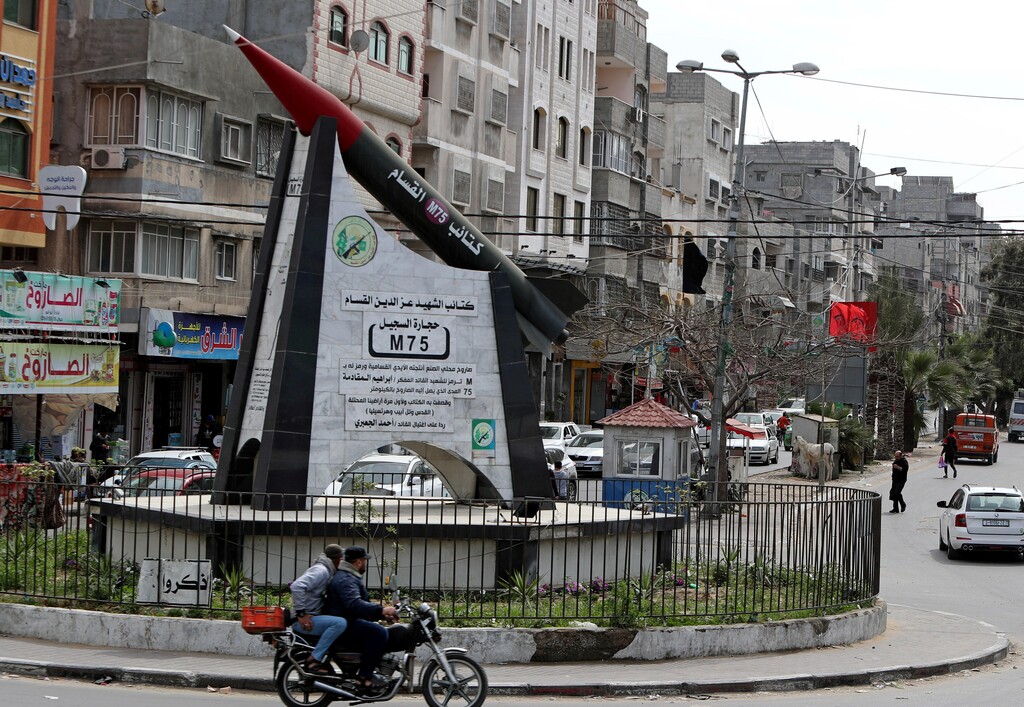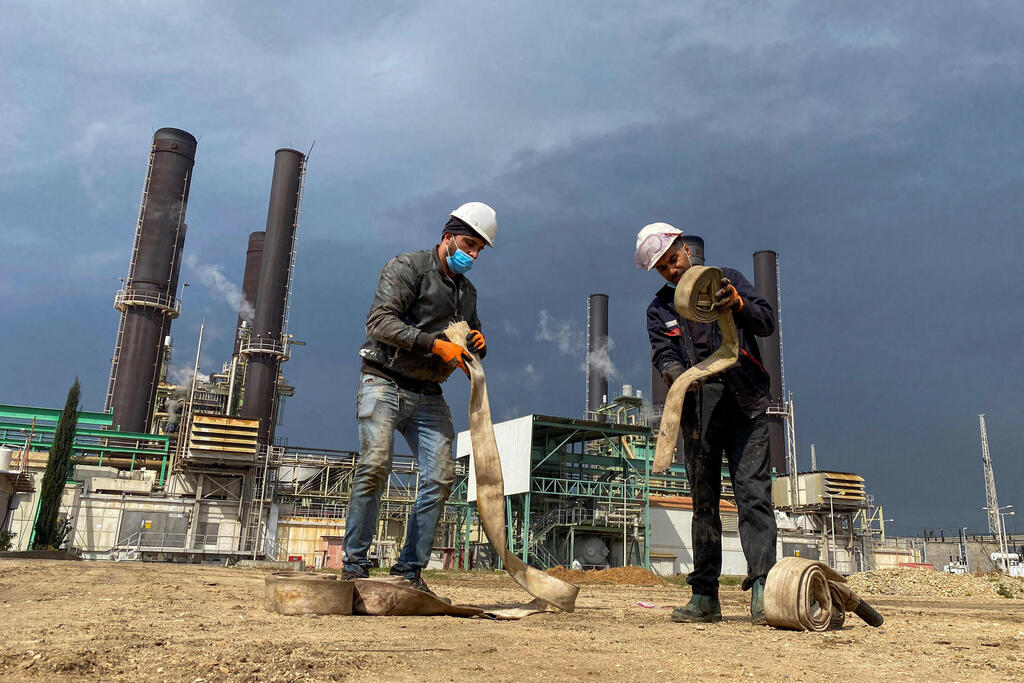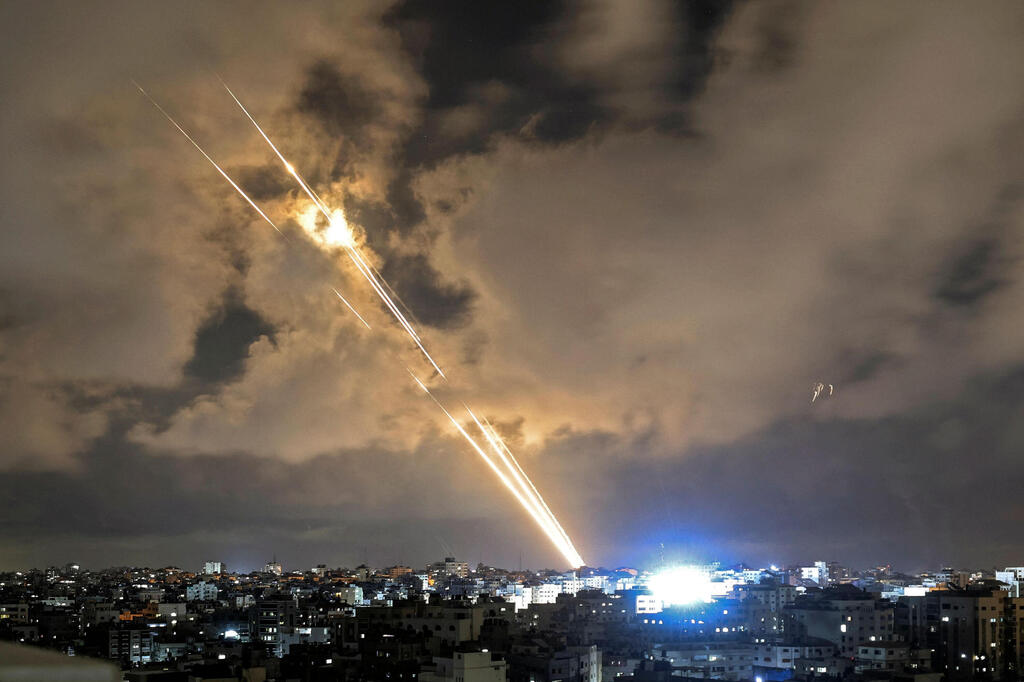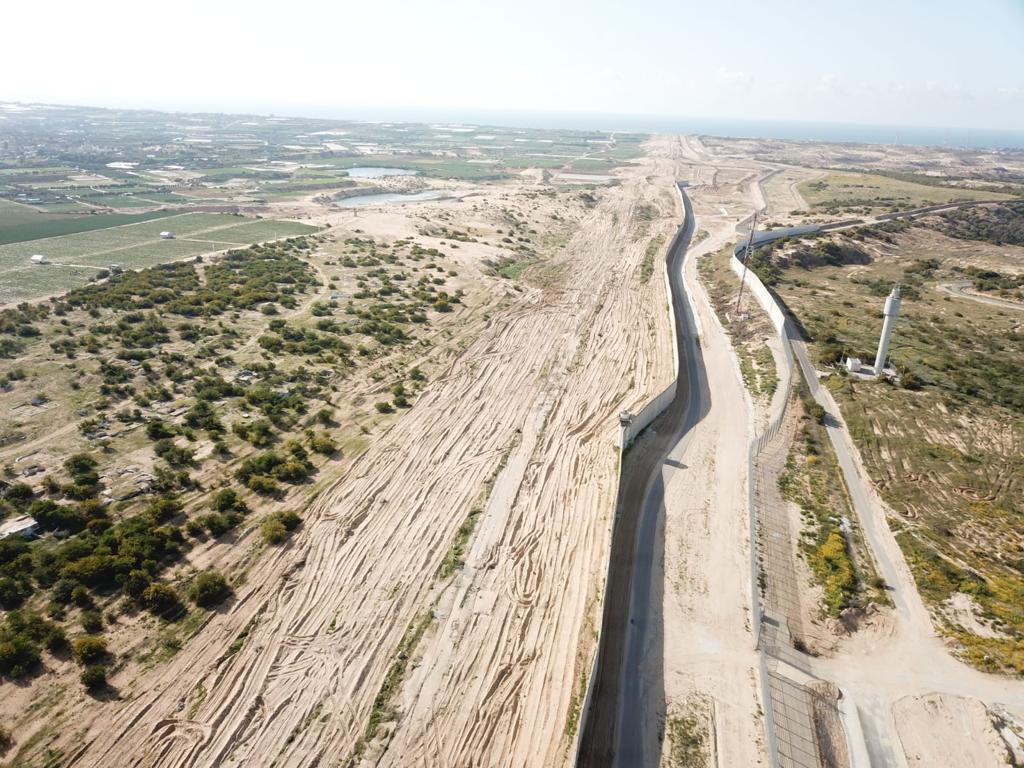The single most important non-military achievement of the fighting in the Gaza Strip in May is Egypt taking more responsibility for the enclave's economy.
The more Israel distances itself from the entry of goods and money to rehabilitate the Strip, the more Egypt finds itself – against its will – more deeply involved in its management.
For years, Cairo determinedly avoided any responsibility for Gaza, opting instead for the less fraught position of regional mediator.
But now, with the momentum created thanks to Hamas leader Yahya Sinwar's political short-sightedness, Israel might finally be able to free itself from the duty of care for Gaza's residents.
For when Sinwar gave the order to fire rockets at Jerusalem on May10, he failed to predict that this would lead to a fundamental shift in Israeli policy on Gaza.
The Hamas officials tasked with overseeing Gaza's economy update Sinwar daily on the heavy price its citizens are paying due to his miscalculation, as Israel is now only transferring goods it deems to be humanitarian aid and fuel at a very limited capacity.
6 View gallery
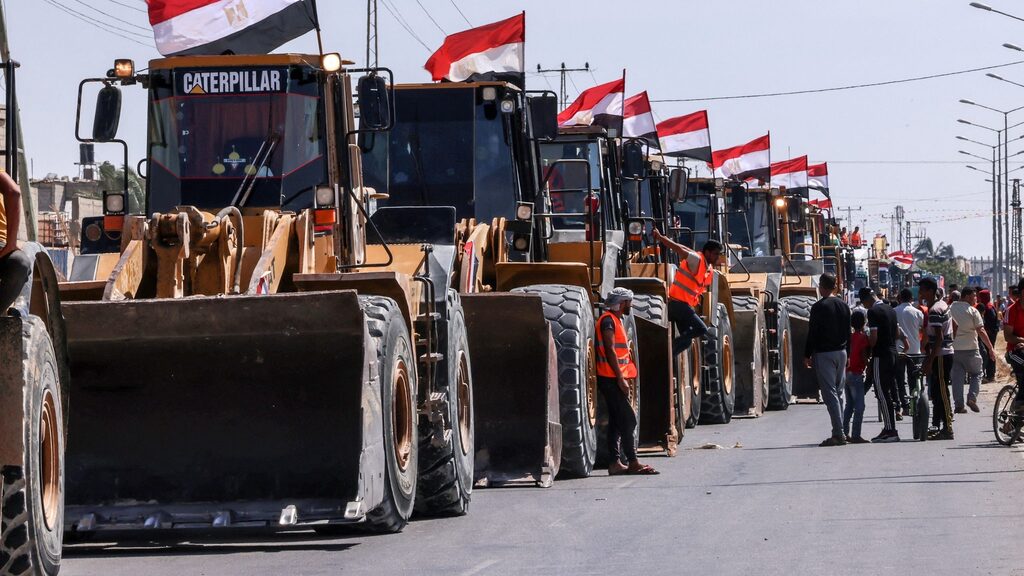

A convoy of Egyptian bulldozers arrives on the Gaza side of the Rafah border crossing between Egypt and the Strip, June 4, 2021
(Photo: AFP/Getty)
Israel has also issued limited permits to the thousand or so fishing boats that support some 35,000 people in the Gaza Strip and allowed a restricted amount of agricultural export to the West Bank. This places a new burden on Egypt, which also has a blockade on the Strip.
The Egyptians have been left with no choice but to fill the gap: President Abdel Fattah Al-Sisi has pledged half a billion dollars in aid but has yet to even deliver a single cent.
And while the amount of goods entering Gaza from Egypt quadrupled after the May conflict, it is not in the same quantities as the deliveries from Israel.
In the days preceding the fighting, COGAT – the IDF liaison body to the Palestinians – was still conducting talks with Hamas on a wide arrange of economic projects for Gaza.
On May 8, just two days before the conflict erupted, both sides agreed upon a mechanism to ease the entry of goods into Gaza, as well as on a new pipeline that would increase the amount of water brought into the Strip from Israel.
Advanced discussions were also taking place on the construction of fish farms along Gaza's coastline, the establishment of a large fuel reservoir to prevent future power shortages and a jointly operated industrial zone at the Karni border crossing.
Planning for all of these measures was at a fairly advanced stage and Sinwar never imagined that Israel would actually dare to cancel it all.
But the moment the rockets were fired from Gaza into Israeli towns and cities, everything stopped.
Israel's defense establishment made a recommendation to the politicians to change course on benefits for Hamas. All agreements were canceled and the drawbridge went up.
What was, is no more, Israeli officials repeated during the fighting. The true meaning of that is now clear.
In talks held in Cairo last week, Israel prioritized the return of two Israeli captives and the bodies of two fallen soldiers held by Hamas as a prerequisite for rehabilitation of Gaza, knowing full well that the terror group would oppose this.
But this was merely a ruse. Israel has made it clear to Hamas that there are no more deals to be made.
6 View gallery
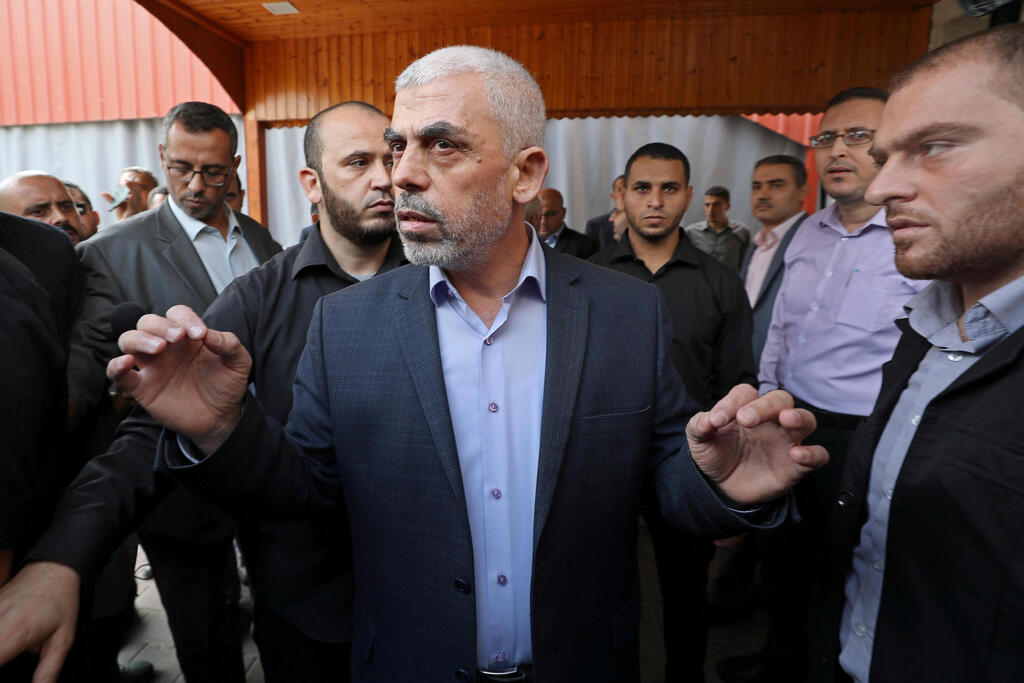

Hamas leader Yahya Sinwar talking to the media in Gaza City after the May 2021 conflict
(Photo: Reuters)
Moreover, Israel can now implement a step it had ready before the Gaza fighting but had chosen not to take: a total ban on cash entering Gaza and the transfer of Qatari financial aid in the form of vouchers to be distributed by the UN.
Hamas victory celebrations after the fighting ended on May 21 were short-lived: The Muslim holiday of Eid al-Adha is less than two weeks away and Gaza's traders are reluctant to stock up on goods, fearing no one will have money to buy them or even that there could be another round of fighting.
Other than renewed rocket fire, Hamas has no leverage over Israel, and the IDF is just waiting for the first projectile to fly as reason to destroy the organization's remaining arsenals.
By the beginning of 2022, Israel will have completed its new reinforced border fence with Gaza. The underground barrier that stops terror tunnels being dug into into Israel territory has already been finished.
The total physical separation of Gaza from Israel is almost complete.
When it is, Israel must decide whether it will continue to take responsibility - even partially - for the wellbeing of the residents of the Strip, even if Hamas keeps up the armed conflict, or whether it will lock the door and throw away the key.


